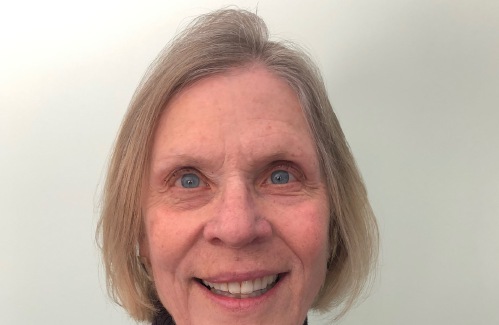Monadnock Ledger-Transcript – Mary Loftis: Discovering a house – Assist results in success
Published: 4/11/2022 8:01:25 AM
Modified: 4/11/2022 8:00:11 AM
An antique china cabinet sits against the wall adjoining the dining area in a homey apartment in Peterborough. It’s a family heirloom from her grandmother, the young woman says, and was in storage for two years while she waited for a Section 8 apartment to become available to her and her young daughter.
Now, that reminder of her family provides a nice contrast to the trendy furniture she has collected and refurbished. This apartment represents a home to be proud of: colorful, orderly and personal, with art and photographs on the walls and toys neatly stored on a mini-trampoline. Around two years ago, the woman who lives here found herself without a place to go. Her partner (the father of her daughter) suddenly broke off their relationship and she was forced to leave their apartment in a nearby town.
First, she and her then-3-year-old daughter stayed in the finished basement of a friend. Her daughter, who had been diagnosed with speech delays, was enrolled in preschool in the local school district. After several months, they moved to a shelter out of the district, but transportation to school became a challenge. Meanwhile, the young mother had no car, no driver’s license and no job. A social worker for the school district suggested that she apply to the Monadnock Area Transitional Shelter. She was accepted and moved to Peterborough in September of 2020. “I hit the jackpot!” is how she now describes her stay at MATS.
Although transportation to preschool was now easier, COVID soon shut down in-person school, so child care remained an obstacle to finding work. However, this young woman got busy meeting her many challenges. She practiced driving with the help and support of MATS Program Director Susan Howard, obtained her license and soon purchased a used car. When in-person school resumed, she was able to find a job in her field. A culinary school graduate, she is a skilled baker. With Howard’s help, she applied for SNAP benefits and health insurance for herself and her daughter and was able to work out a parenting and child support plan with her ex-partner.
She said she was leery of moving to a shelter and worried about the stigma. It was, however, “totally worth it” to get the help and support of the program. It has helped her professionally and as a mother. When she first moved to MATS, her daughter struggled to communicate and consequently was often frustrated and disruptive. Howard’s simple advice for managing a violent tantrum was take her outdoors and do a few laps around the yard. “And it worked; she’d calm right down!” the mom said.
Things have been looking up for quite a few months now. The young woman has been able to attend to her own health with visits to the eye doctor, dentist and a chiropractor to treat a back problem. Her life is stable, her credit good, but she had to wait until her name came to the top of the list for affordable housing. Finally, in late winter, it did. She has made a home, has a new job that will expand her professional knowledge of food and is saving for a newer car. And because MATS offers an after-care program for its former guests, she can always call Howard for advice about most anything.
This young woman and her daughter were on the list for Section 8 housing for two years, during which time they had a safe place to live. This is not the case for others in our region who are experiencing homelessness, which is due in large part to the severe shortage of affordable housing in the area. Study after study has identified restrictive zoning ordinances as a major factor in New Hampshire’s housing shortage. Yet the state Legislature has repeatedly rejected efforts to amend local land-use and zoning policies to allow for the development of affordable housing, most recently tabling a bill sponsored by Rep. Ivy Vann that would have “relegalized” smaller multifamily buildings in communities served by municipal water and sewer.
In Dublin, a warrant article that would have allowed denser development in carefully prescribed circumstances was pulled from the ballot before townspeople could even vote after several citizens complained that the change threatened the “rural character” of the town. The lack of affordable housing — and the resulting crisis of homelessness — must be addressed, and we at MATS urge you to write to your town and state officials and demand changes to obsolete regulations.
Meanwhile, MATS will continue to help people stabilize their lives. The organization is always looking for donations of serviceable used cars. Our Hope Fund is targeted to transportation: cars, repairs, gas. Another special fund, the Steven Fund, focuses on programming for children. With the school year soon to end, working parents will rely on camps and summer programs for their kids. If you would like to contribute to either of these funds – or generally to the work of MATS – please go to matsnh.org.
Mary Loftis is a member of the Monadnock Area Transitional Shelter board.


Comments are closed.